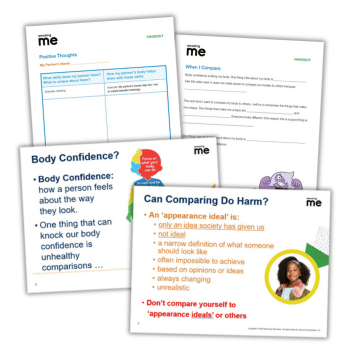Safeguarding in schools – 5 key challenges when pupils go back

Welcoming pupils back to school in the wake of coronavirus will entail a number of safeguarding challenges – Bethany Eadie from The Key highlights what to look out for…

- by Bethany Eadie
- CPD lead at The Key

1. Your new statutory safeguarding responsibilities
The DfE has recently updated its ‘Keeping Children Safe in Education, part 1’ guidance with a series of updates that come into force on 1st September 2020 (though they remain in draft form at the time of writing). Make sure you read the new part 1 and fully understand what’s changed – your school’s designated safeguarding lead should also be able to offer advice on what you and other school staff need to take away from the guidance. The main changes involve new information concerning mental health, child criminal exploitation and child sexual exploitation.
2. The spectrum of issues affecting returning pupils
Children returning to school may be dealing with a host of different issues. Some will have had a difficult time at home and see school as a comparatively safe place. Others will feel the opposite – safe at home, and anxious at the prospect of being back on site. Most pupils will likely adapt and settle back in, but others will need additional support.
Make sure you’re aware of, and fully appreciate the issues that children at your school might be dealing with. Some pupils may have experienced a parent being made redundant or furloughed; not having enough food to eat; having to care for younger siblings at home; a family member becoming seriously ill or bereavement.
Experts have advised that we’re likely to see an increase in the number of children suffering from anxiety (including social anxiety in teenagers), traumatic stress, grief and the effects of having witnessed domestic abuse as a result of the pandemic. Children who were vulnerable before the pandemic are likely to be much more vulnerable now, and there will be many hitherto not classed as vulnerable who now are. It’s crucial that everyone in your team can continue to support them.
3. Warning signs
Be sensitive to the outward indicators of those issues, and familiarise yourself with what to observe in each instance. Your DSL should be able to provide some training on this; further information can be had from the NHS, the NSPCC and Cruse Bereavement Care. Bear in mind that that school staff aren’t expected to be experts; it’s not your job to diagnose such issues, but you do need to be aware of signs that show a child may be struggling, so that appropriate referrals can be made to the DSL.
Also, be mindful of your capacity to meet demand, given the situation we’re in. Prepare to field more disclosures than before, and make sure your DSL will be able to handle a marked uptick in referrals.
4. The support you can provide
Give your pupils opportunities to talk about their experiences over the past few months. Invite them to ask questions of each other, discuss how they’re feeling and share any worries they have. You may wish to provide opportunities for one-to-one conversations. Teachers might want to build in some refocused lessons on relevant topics, such as mental wellbeing and staying safe. Pastoral activities can encourage the renewal and development of important friendships and peer groups.
Of course, any and all safeguarding concerns must be reported. Review the steps you need to take if you suspect, or become aware of any safeguarding issues through disclosures, and confirm whether there are any interim reporting arrangements as a result of COVID-19 measures.
5. Your own wellbeing
Safeguarding is always a difficult topic, and some things may be upsetting to hear, especially in the present moment. It may well be that you require additional support to help you with your own reintegration and personal circumstances, on top of the emotional strain that will inevitably accompany a rise in safeguarding concerns and disclosures. Make sure you seek help and support if you need it. Free, confidential support can be obtained from trained counsellors by contacting the Education Support helpline (educationsupport.org.uk).
Bethany Eadie is a senior content producer at The Key; the advice in this article is taken from The Key’s Safeguarding Training Centre, further details of which can be found here. Browse resources for Child Safety Week.










